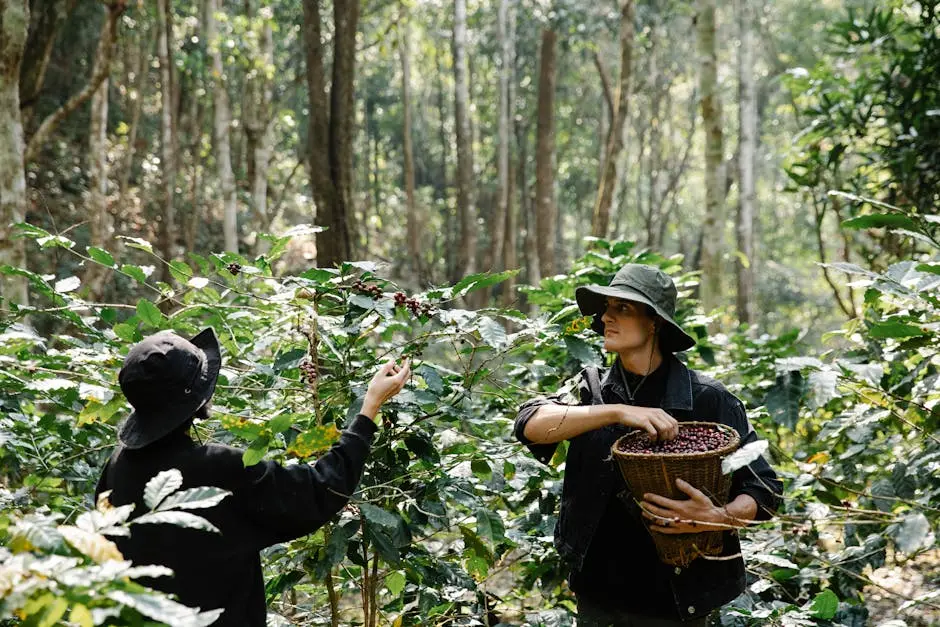
How Does Ethical Coffee Impact Farmers?
In recent years, the rise of ethical coffee has made waves in the coffee industry, promising not only high-quality brews but also fair treatment for farmers. Understanding how ethical sourcing affects those who cultivate our beloved coffee is essential for both consumers and producers alike. Let’s delve into how ethical coffee impacts farmers and the ripple effects it creates within communities.
Understanding Ethical Coffee
Ethical coffee is not just a trend; it’s a commitment to fairness and quality. This approach focuses on ensuring that coffee farmers receive a fair price for their products. Many consumers may be surprised to learn that their daily cup of coffee can signify much more than just caffeine—it can represent hope and stability for farmers around the globe.
At the core of ethical coffee is the belief that everyone in the coffee supply chain deserves to be treated fairly. This means transparency and accountability are essential. Consumers can feel good knowing that their choices directly benefit farmers and their communities.
Moreover, ethical coffee supports practices that preserve the environment. By promoting organic and sustainable farming methods, it not only contributes to better coffee quality but also helps safeguard our planet for future generations.
Fair Compensation for Farmers
One of the most significant impacts of ethical coffee is the focus on fair compensation for farmers. Traditionally, many farmers received payments that barely covered their costs, leaving them trapped in a cycle of poverty. Ethical coffee seeks to change this narrative by ensuring farmers are paid a living wage.
With fair prices, farmers can invest in their farms, their families, and their communities. This newfound financial stability allows them to make long-term plans, such as sending their children to school or expanding their agricultural practices.
Beyond just the dollars and cents, fair compensation fosters respect within the coffee trade. Farmers who feel valued are more motivated to produce high-quality coffee, leading to exceptional flavors and aromas that coffee lovers crave.
Promoting Sustainable Farming Practices
Ethical coffee goes hand in hand with sustainable farming practices. This means farming techniques that are gentle on the earth and help combat issues like deforestation and soil degradation. By investing in sustainable methods, farmers can protect their land and ensure it remains productive for generations to come.
For instance, many ethical coffee producers utilize shade-grown coffee methods, which provide habitat for wildlife while also maintaining the coffee plants’ health. This practice leads to a more biodiverse ecosystem, which is crucial in combating climate change.
Additionally, sustainable practices help in minimizing chemical use, which is beneficial not only for the environment but also for the health of the farmers and consumers. By embracing sustainability, ethical coffee cultivates a positive cycle that benefits farmers, consumers, and the planet alike.
Empowering Communities Through Ethical Sourcing
The benefits of ethical coffee extend beyond just the individual farmer. By investing in ethical sourcing, entire communities stand to gain. Many ethical coffee brands support community-driven initiatives, providing funds for schools, healthcare, and infrastructure.
With better schools, children can receive a quality education, increasing opportunities for the next generation. Health initiatives ensure that families have access to necessary medical services, contributing to a healthier community overall.
Moreover, when farmers are paid fairly, they can create local jobs, leading to economic growth and reducing the need for migration. This not only strengthens the community’s economy but also fosters a sense of belonging and pride among its members.
Consumer Choices Impacting the Coffee Market
Consumers play a crucial role in the ethical coffee movement. By choosing ethical coffee brands, individuals send a powerful message to the market about the importance of fair treatment for farmers. These purchasing decisions can reshape the coffee industry for the better.
When consumers opt for ethically sourced coffee, they support companies that prioritize social responsibility. This encourages more brands to adopt ethical practices, leading to a ripple effect that can transform the entire coffee supply chain.
Ultimately, every cup of ethical coffee represents a collective choice for a more just and sustainable world. By being mindful of our coffee choices, we can help create a positive impact that reaches far beyond our morning routines.
Making a Difference with Ethical Coffee Choices
The impact of ethical coffee on farmers is profound and multifaceted. By prioritizing fair wages, sustainable practices, and community development, ethical coffee sourcing can help farmers secure a more stable future. As consumers, our choices matter, and opting for ethically sourced coffee can contribute to a more equitable and sustainable coffee industry.

